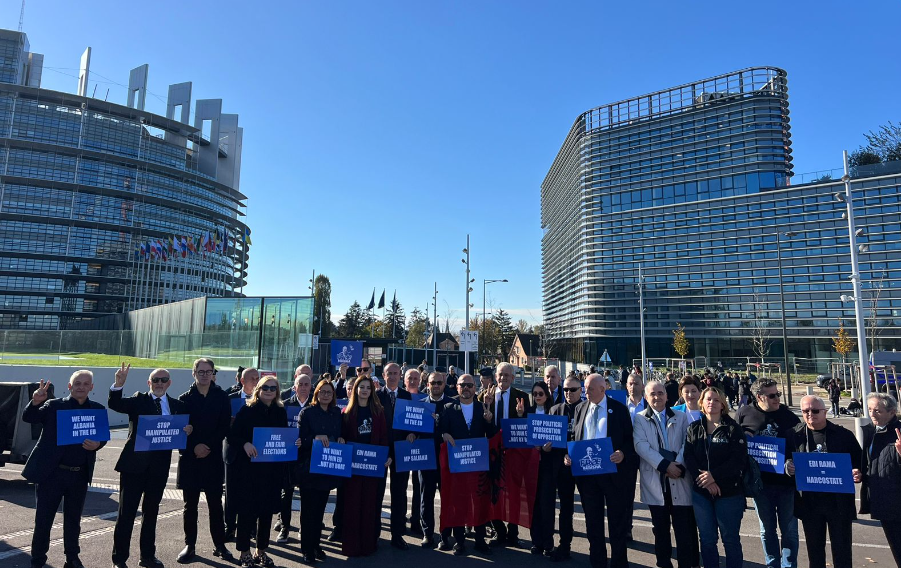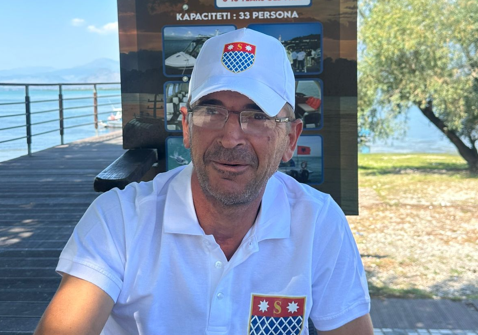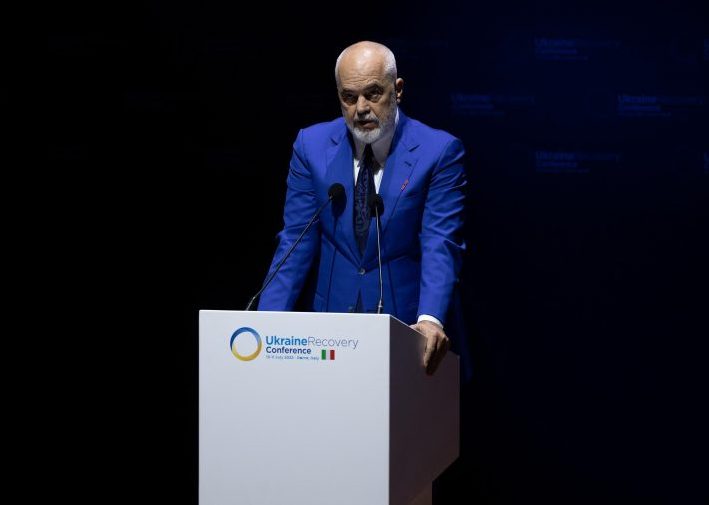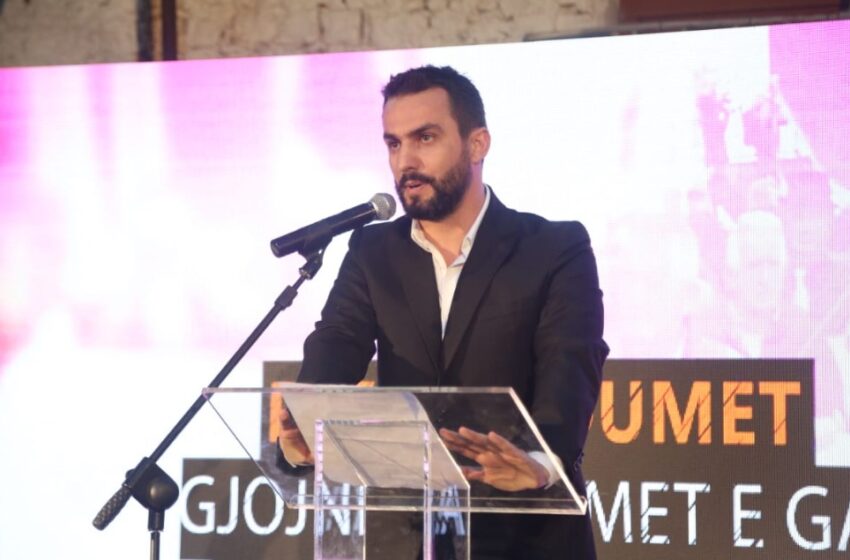Albanian Democratic Party MPs protest in Strasbourg, raise concerns over democracy

Photo: Democratic Party staged a sensitization campaign outside the European Parliament.
A group of 30 MPs from the Democratic Party (DP) staged a sensitization campaign outside the European Parliament, aiming to raise awareness among European lawmakers about what they claim are politically motivated arrests and violations of opposition rights in Albania. The MPs, wearing t-shirts that read “Lironi Berishën” (Free Berisha) and carrying Albanian flags, highlighted their concerns over democratic backsliding.
Why is this important: The protest is part of an ongoing effort by the opposition to engage international attention. According to the PD, the arrest of Sali Berisha, former prime minister and opposition leader, threatens the balance of political competition in Albania and undermines free and fair elections.
What was said: During the campaign, opposition MPs held meetings with Sandro Gozi, Secretary-General of the European Democratic Party, and Oihane Agirregoitia Martínez, a representative from the “Renew Europe” group, to discuss the situation in Albania. The deputies shared their concerns about the political climate and urged European lawmakers to monitor the situation closely.
“We face difficulties getting the world to notice what’s happening to democracy in Albania, especially with so many global conflicts,” said Edi Paloka, head of the PD’s National Council. He warned that democracy in Albania is being compromised, as international allies seem to prioritize stability over democratic functioning.
Context: The Democratic Party has organized violent protests and disrupted parliamentary proceedings in response to the arrest of their leader, one of their MPs accused of false reporting. It has also announced a protest against the arrest of their ally, former president Ilir Meta. These actions stand in sharp contrast to the way in which the government has responded to arrests from among its ranks; it has unconditionally supported the new justice institutions. The opposition has also been criticized by Albania’s Western allies for its violent protests.
Weakening the protests of DP further is the fact that while DP claims the arrests are politically motivated, Berisha has been blacklisted by the United States for corruption and declared persona non grata, along with his family. The UK has also cited Berisha for links to organized crime.
What’s this about: At the heart of the opposition’s complaints are the justice institutions, particularly the Special Structure Against Corruption and Organized Crime (SPAK), which is responsible for the investigation of both Berisha and Meta. These institutions are key elements of Albania’s justice reform, a project strongly supported by the EU and US. Both have expressed strong support for SPAK’s work and condemned attacks against it. At the same time, SPAK enjoys overwhelming support from the Albanian public for the fact that it is taking on previously untouchable politicians.
However, the Democratic Party has repeatedly criticized the new justice institutions, accusing them of being tools of political persecution, controlled by the Prime Minister. Despite these criticisms, SPAK’s investigations have targeted far more Socialist Party members, including former ministers, a deputy prime minister, mayors, and MPs. According to government officials, this demonstrates the impartiality of the reforms.
What adds to the inconsistency of the opposition’s stance is the fact that despite its vicious attacks against SPAK and personal attacks against its prosecutors when they investigate DP representatives, DP too has often referred rival politicians to SPAK, accusing them of corruption and abuse of power. Case in point, on the same day as it arrested former president Meta, SPAK also ordered the arrest of former Socialist MP Jurgis Cyrbja. This has led to accusations of double standards against DP, which only supports SPAK when it is investigating its opponents, but reacts violently when its members are under investigation.
Concerns over election integrity: Deputies expressed concerns that Berisha’s arrest threatens to disrupt political competition ahead of future elections. Tomorr Alizoti emphasized that Albania’s EU membership process requires adherence to democratic standards, including free and fair elections.
“Fair elections are a fundamental requirement for EU membership,” Alizoti said. “The current political environment makes it impossible to ensure equal participation.”
Dhurata Çupi added that the arrests of opposition leaders create an uneven playing field. “This is an unfair campaign,” she said. “We see election results manipulated through vote-buying and pressure on public employees.”


